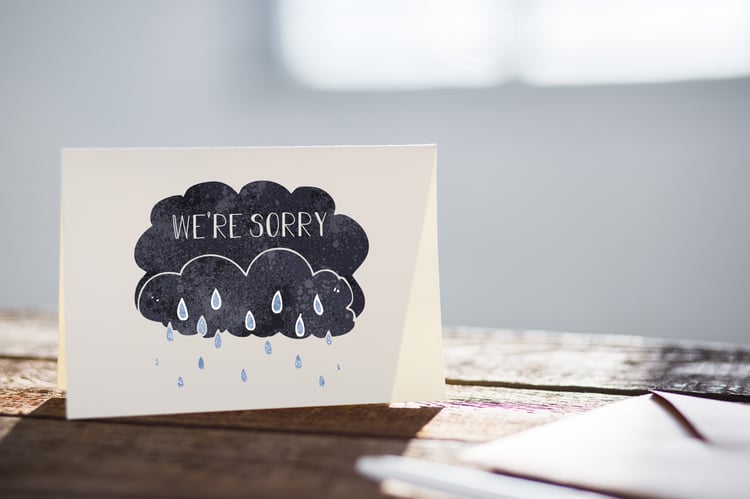As a business owner, you never want to have to deal with an angry customer.
But sometimes, even the most reliable services and quality products can fall short of a patron’s expectations. Here are 6 ways you can tame the hottest of tempers and earn repeat business in the process.
Listen Like a Friend
When a customer’s experience goes south, give them the opportunity to express how they feel. Sometimes, just having the ability to talk can make a customer feel valued. Instead of waiting for your turn to provide a reason or excuse, truly listen to what your customer is saying. When they are finished speaking, repeat back some of the words, phrases, or examples they used in your reply so they know that you heard what they said. Tell them that you understand why they feel the way they do and agree with them. Let them know that if you were in their situation, you’d have the same reaction.
Say You're Sorry
When someone confronts you, defending the situation at hand or your stance on the matter is completely natural. In the case of a disgruntled customer, however, it’s best to fight the immediate urge to become defensive. They’re providing you with honest feedback with the hope that you’ll recognize that something went wrong. Whether that’s a fact or merely their perception, “I’m sorry” and “I apologize” are the most disarming statements you can make in a sticky situation. Even if a customer’s complaint is completely unwarranted, apologizing that they feel the way they do is an easy way to acknowledge their frustration without admitting any wrongdoing on your part.
Be Transparent
If there is a clear reason why you were unable to meet a customer’s expectations, let them know what happened after you apologize. They will appreciate your honesty and likely sympathize with your situation and be more open to the manner in which you choose to make it right.

Do Everything You Can in the Moment
There’s nothing more upsetting to a dissatisfied customer than being put on hold, referred to another employee, or told, “I can’t help you with this.” When a customer confronts you with a problem, even the smallest amount of effort can be perceived as stellar customer service. Instead of shuffling the customer to a colleague or neighboring department, ask them to hold a moment and do the detective work yourself. The customer has told you what’s wrong so you’re equipped to handle their request, and they don’t want to have to repeat their complaint to another person. If you’re unable to solve the problem right away, ask for their phone number and follow up as soon as possible with an update so the customer knows that they are a priority to you.
Offer a Discount
When an apology isn’t enough to appease an unhappy customer, offer a discount on the product or service they purchased. Shaving off a few dollars can make a big difference, because it shows that you’re willing to stand behind your products and services so much that if they don’t deliver, you’re willing to cover the cost. Not to mention, in a world where one negative online review will cost you lots of would-be customers, that one discount could be worth more than double its amount when it comes to future business.
Give Them a Gift
If you think that a customer’s unfortunate experience might cause them not to return, consider giving them a reason to stick with you and your business by sending them a gift. This gesture not only acknowledges that the customer’s experience wasn’t quite up to par, it goes the extra mile to show that you’re still thinking about them. If your product doesn’t quite pass for an appropriate gift, consider sending them a gift card that enables them to cash in the amount at a restaurant or retailer they frequent. That way, the most recent experience they’ll associate with your business will be a pleasant one.
Whether you take one or some of the suggestions above, the general rule of thumb when dealing with an angry customer is to put yourself in their shoes - no matter how uncomfortable or strange those shoes might be. When you envision the customer experience from their perspective, you can learn to be a more empathetic person both on and off-duty, as well as identify areas of opportunity in your business that can set you up to succeed in the long run. So the next time you’re faced with an angry customer, consider it a chance to improve as both a person and as a business owner.



